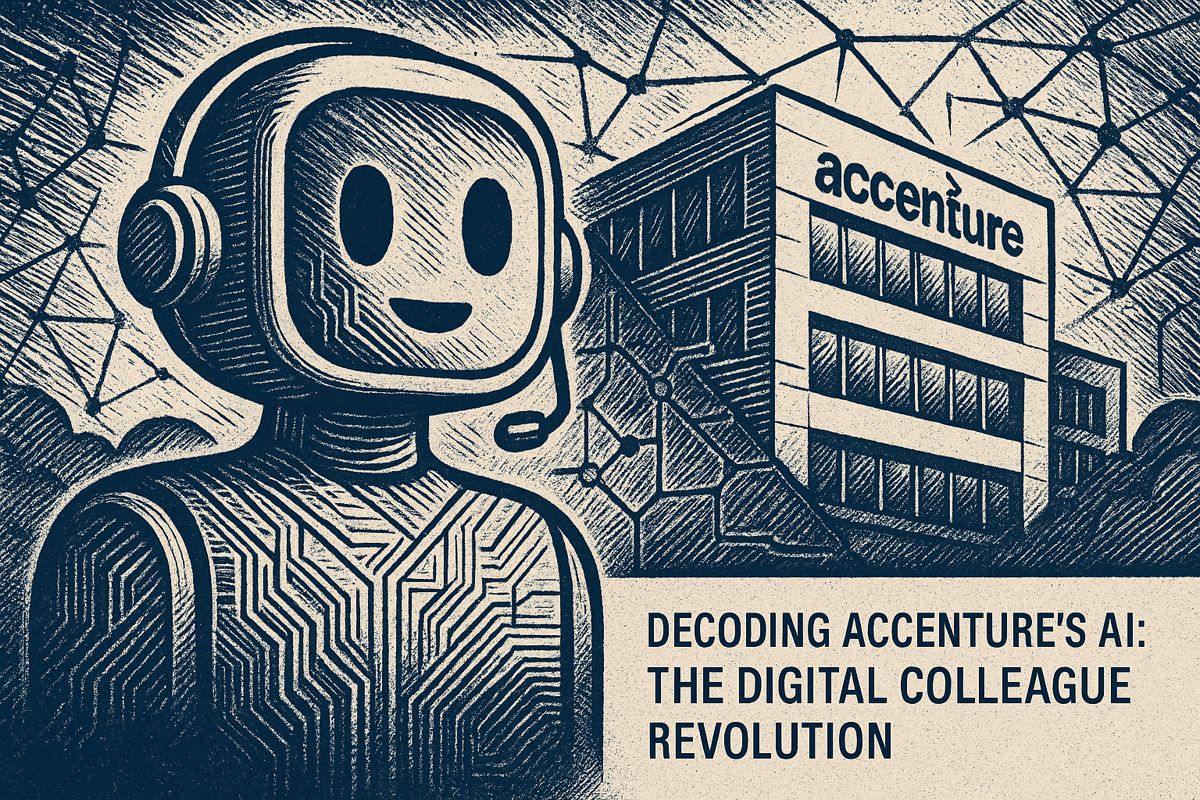True experts stand out by being humble, specific, and transparent. They share real experiences, admit when they’re unsure, and don’t just repeat what everyone else says. Authentic thought leaders use tools openly and reveal their learning journey. The digital landscape is full of recycled AI commentary, but those who bring genuine insights and personal stories shine through. Real expertise isn’t about sounding smart, but about being honest and truly understanding the complexities of artificial intelligence.
How Can You Identify Authentic AI Expertise in a Saturated Digital Landscape?
Authentic AI expertise is characterized by humility, specificity, vulnerability, and transparency. True thought leaders disclose tool usage, admit uncertainty, share personal experiences, and prioritize depth over frequent, shallow content that merely echoes existing narratives.
Prologue: Echoes in the Digital Agora
Let’s start with a confession: sometimes, while doomscrolling through LinkedIn with a cup of over-steeped Russian Caravan tea by my keyboard, I feel a faint, almost fizzy sense of déjà vu. The “AI thought leaders” are at it again, their pronouncements piling up like autumn leaves in a courtyard—crackly, colorful, but mostly indistinguishable. Is anyone else smelling the faint whiff of recycled content here? Jason Kneen, who’s carved out a rep for calling things as he sees them (and who once corrected me mid-thread—awkward, but I learned), recently amplified @alexutopia’s pithy jab: many of those parading around with “AI thought leader” on their badges are neither thinking deeply nor leading, but rather retweeting the zeitgeist du jour.
It’s not a uniquely AI phenomenon—oh no, this has the ancient tang of the palimpsest. Every technological or artistic eruption, from the Futurists’ thunderous manifestos to the arrival of hyperspectral imaging in art conservation, seems to precipitate a wave of would-be prophets. Some bring substance; most bring… echo. I remember attending a panel at NeurIPS last December where, for every incisive comment, there were three bland echoes, as predictable as instant oatmeal. At first, I felt irritation. Then, oddly, a kind of melancholy.
The Recursive Spectacle: AI on AI on AI
Platforms like LinkedIn and Medium, those sprawling digital bazaars, have become echo chambers for AI commentary. If you listen closely (which I sometimes do, though my patience is finite), the same principles reverberate again and again. A study in the Journal of Computational Social Science pegged the proportion of AI-related long-form posts authored or “augmented” by bots at over 55% in 2023. The effect? A torrent of algorithmically polished, semantically beige prose, punctuated by the occasional sudden flourish—like spotting a lapis lazuli fragment in a gravel pit.
The irony is almost edible. Many of these “original” perspectives on artificial intelligence are, in fact, conjured up by precisely the systems they’re purporting to analyze. Candice Gersun—her ethnographies are worth your time, by the way—notes that while AI can churn out plausible commentary, it stumbles when asked for real synthesis or emotional candor. At best, it’s mimicry with a velvet sheen; at worst, it’s a Möbius strip of self-reference—AI writing about AI, as though the ouroboros had started a Substack.
Of course, the risks are more than aesthetic. Readers are sometimes handed citations that never existed, or “insights” that are merely plausible facsimiles. The result is a gradual erosion of trust. After all, when every voice sounds like a pastiche, who do you believe? Anne Beaulieu put it best: “No one wants to be forgettable.” I once fell for a particularly eloquent thread—only to discover, after a sniff test, that it was stitched together by GPT-3 and a harried PR intern. Ugh. Lesson learned.
Authenticity: The Scent of Lived Experience
So what distinguishes the genuine article from its synthetic doppelgängers? For starters, authentic thought leadership smells different: a mix of humility, specificity, and that odd tinge of vulnerability you only catch from someone who’s actually botched a production deployment at 2am (guilty). Charles Cooper’s essays on the interplay of classical logic and neural nets are instructive here—he doesn’t just regurgitate research; he synthesizes, questions, and, crucially, admits when he’s uncertain. I had to stop and ask myself: when was the last time I saw a self-proclaimed AI maestro admit they’d been wrong? It’s rarer than Beluga caviar at a hackathon.
Transparency, too, is a marker. The bona fide experts disclose when they use tools like TensorFlow or rely on LLMs to draft an outline. They don’t pass off machine-generated text as their own spontaneous wisdom. There’s an ethic at play—a tacit contract with the reader. The old-school tradition of ghostwriting (think Winston Churchill’s speeches, often polished by a trusted aide) still preserved a human core; what’s new is the temptation to sever that core entirely, letting automation float free like dandelion fluff.
Let me share a quick anecdote: last spring, I was prepping a workshop for the London Data Science Society. Pressed for time (and caffeine), I tried letting an LLM draft my intro. It looked fine—until I realized it contained a “personal” story about growing up in Helsinki. I’m from Newcastle. There was a moment of sheepish laughter, and then a reminder: even the most advanced neural network can’t fake the grit under your own fingernails.
Toward a New Signal: Substance, Not Spectacle
Where do we go from here? Discernment, for one. Practitioners must resist the centrifugal pull of daily posting, opting instead for depth—a kind of intellectual slow food. There’s no shame in pausing, reflecting, even admitting (publicly!) that you don’t have all the answers. The AI field, like the avant-garde art movements chronicled by MoMA, will ultimately remember those who brought something fresh, not just those who turned up the volume.
And perhaps we need to recalibrate our cultural incentives. The platforms themselves, from Twitter to Arxiv, could do more to surface insight over engagement metrics. But it’s on us, too. When you encounter a voice that blends concrete detail, lived error, and a willingness to say “I don’t know,” hold onto it. These are the Nikola Teslas of our moment—not always loud, but unforgettable, electric.
Of course, the noise won’t subside overnight. It never does. But as the digital fog thickens, the scent of the real—the tang of honest failure, the thrill of genuine discovery—becomes all the more precious. Bam. There it is.
FAQ: Navigating Authenticity in AI Expertise
What defines authentic AI expertise?
Authentic AI expertise is characterized by humility, specificity, and transparency. True experts demonstrate these qualities by:
– Admitting uncertainty
– Sharing personal experiences
– Disclosing tool usage
– Providing depth over shallow, repetitive content
– Being honest about their learning journey
How can I spot fake AI thought leadership?
Look out for these red flags:
– Recycled content without original insights
– Lack of personal experiences or specific examples
– Unwillingness to admit limitations or mistakes
– Overly polished, generic language
– Absence of tool or methodology transparency
– Content that sounds like it could have been generated by AI
Why is transparency important in AI expertise?
Transparency builds trust by:
– Showing the real process behind insights
– Acknowledging the use of AI tools
– Revealing personal challenges and learning experiences
– Demonstrating intellectual honesty
– Helping others understand the complexity of AI technologies
What makes an AI expert credible?
Credible AI experts typically:
– Have practical experience
– Can explain complex concepts clearly
– Provide nuanced, balanced perspectives
– Continuously learn and adapt
– Engage with the community authentically
– Show a willingness to be wrong and learn from mistakes
How prevalent is AI-generated content in digital discussions?
Research suggests significant AI involvement:
– Over 55% of AI-related long-form posts in 2023 were authored or augmented by AI
– Platforms like LinkedIn and Medium are particularly saturated
– Many posts lack genuine human insight or personal experience
– There’s a growing challenge of distinguishing between human and AI-generated content
What should I do to develop genuine AI expertise?
To develop authentic AI expertise:
– Focus on deep learning, not just surface-level trends
– Practice transparency about your tools and methods
– Share real experiences, including failures
– Engage critically with information
– Continuously update your knowledge
– Prioritize understanding over appearing knowledgeable
– Build a network of genuine, experienced professionals



















